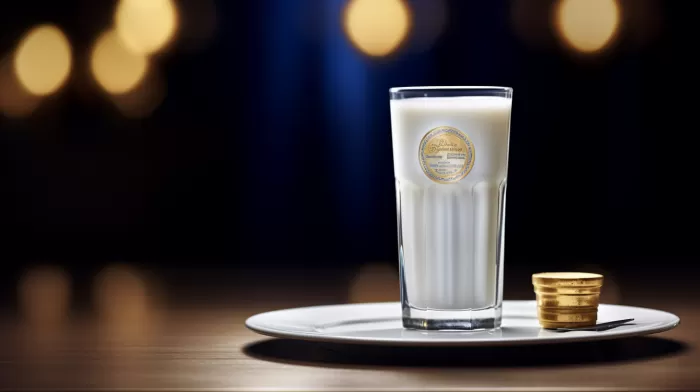Are you aware that milk might just be the secret to unlocking your inner genius? In Gloucester, England, researchers have found a fascinating correlation: countries where people drink the most milk also happen to have the most Nobel laureates per capita.
To be even more specific, Sweden has the highest number of Nobel laureates per 10 million of the population (33), as well as the highest per person milk consumption. On average, each Swede drinks a staggering 340 kg of milk annually—that’s nearly 750 pounds! Coincidence? We think not.
Home-Field Advantage
Of course, some skeptics might point out that Sweden is home to the Nobel committee, so it’s possible that this correlation is due to a home-field advantage. But even if we consider that factor, Switzerland still provides strong evidence in support of the milk-Nobel connection. Similar to Sweden, Switzerland not only consumes a high amount of milk per person (300 kg or 660 pounds per person annually) but also boasts 32 Nobel laureates per 10 million residents.
A “Smart” Beverage Choice
While it’s not entirely clear why higher milk consumption might lead to more Nobel laureates, one possibility lies in the nutrients found in milk. Milk is packed with essential nutrients like calcium, vitamin D, and protein, which all contribute to a healthy and well-functioning brain. In fact, some studies have shown that drinking milk can help boost cognitive function and focus, making it a much better option for your brain than sugary beverages like soda.
Now, you might be wondering, is there any connection between milk consumption and success in other areas—say, in sports? The answer is yes! Many professional athletes swear by milk as a post-workout drink, thanks to its balanced mix of protein and carbohydrates, which can help muscles recover faster after exercise. So, whether you’re aspiring to be a genius or a champion athlete, it seems that milk might be the key to your success!
Not Just Milk, Chocolate Too!
Interestingly enough, the same researchers behind the milk-Nobel laureate correlation also found that countries with the highest chocolate consumption tend to have the most Nobel awards as well. Although this might initially seem like a strange coincidence, it’s no secret that chocolate (especially dark chocolate) has various health benefits, including improving cognitive function and even mood.
What About the Milky Underdogs?
If you’re still skeptical about the milk-Nobel laureate connection, let’s take a quick look at the other end of the spectrum. China has the lowest number of Nobel laureates per capita, as well as the lowest per person milk consumption (only about 25 kg or 55 pounds per year). While it’s true that there could be various factors contributing to these low numbers (cultural, economic, etc.), it’s hard to ignore the glaring trend: less milk, fewer Nobel laureates.
The Bottom Line
At the end of the day, it’s important to note that while these researchers found a correlation between milk consumption and Nobel laureates, correlation doesn’t necessarily mean causation. In other words, drinking milk won’t guarantee that you’ll become a genius or a Nobel Prize winner. Nonetheless, the connection is certainly intriguing. After all, if milk is good enough for some of the world’s greatest minds, it might just be worth adding to your own daily routine.
Keep in mind that moderation is key, as consuming excessive amounts of any food can lead to health issues. Furthermore, make sure to choose a high-quality source of milk, whether that means going organic or even seeking out alternatives like almond or soy milk for those who are lactose intolerant or concerned about animal welfare. And, if you’re looking for an extra brain boost, consider pairing your glass of milk with a piece (or two) of dark chocolate!



